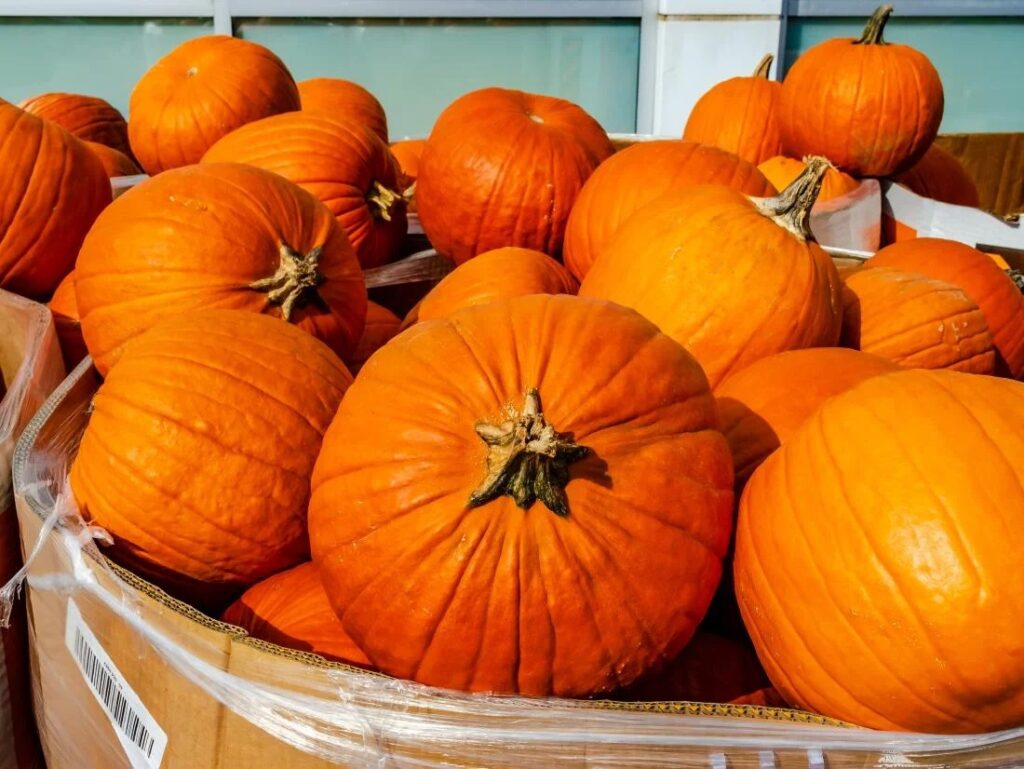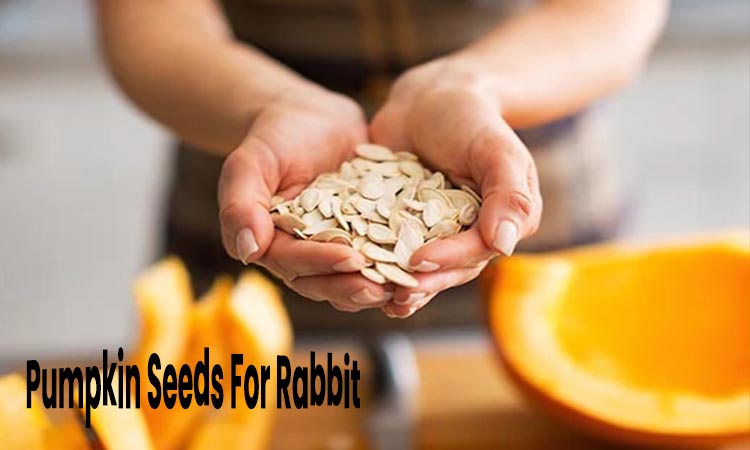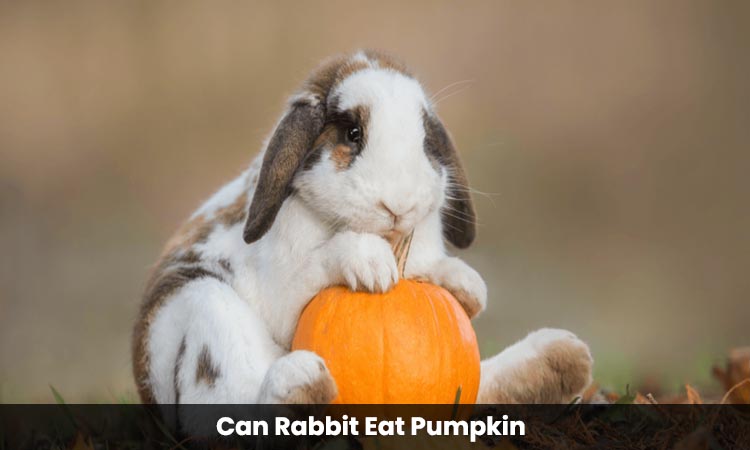Many people consider rabbits to be good pets that are easy to care for because they can be social and relatively playful and have soft fur. They require very little in terms of maintenance, and with a little pampering in terms of food, they can also do well health wise.
The primary components of rabbit food are hay, fresh green veggies, and very few pellets, which relieve the common deficiencies of nearly all rabbits. However, there are several questions about seasonal foods, like wondering whether pet owners can share pumpkin with their pet rabbits.
Pumpkin is a very common vegetable, especially during the fall season, and is known to be very rich in vitamins and fiber. But is it okay to feed your rabbits some pumpkin?
In this blog, we shall look at the considerations regarding the suitability of pumpkin to a rabbit’s diet and what gain the rabbit may derive nutritionally from pumpkin, how to feed it, and how rabbits could be harmed from these practices. So by the end of this guideline, you will know everything there is about feeding pumpkins to your rabbit.
Can Rabbits Eat Pumpkin?
Yes, rabbits can eat pumpkin, but it should be given as a forage only in very small amounts. Pumpkins are rich in fiber, vitamins A and C, and water content which are advantageous for a rabbit. Fiber controls the functioning of the gastrointestinal of rabbits while vitamins have positive influences such as assisting the immune system health and general health.
Nonetheless, pumpkin is still comparatively more calorific in natural sugars than ordinary grasses and hay. It is important to be very careful as feeding pumpkins and other sugary foods in excess might cause digestive problems, unnecessary weight, or more not-so-healthy imbalances in their diet.
Open, it is wise to say that it is fundamental to cut down since it is absolutely useless. Fresh raw pumpkins are recommended—completely avoid all forms of pumpkin that have been canned or cooked as they often much sugar, preservatives, and spices which are not safe for rabbits.
To conclude, rabbits can have pumpkin but it should only be considered as a treat more so than food. Any new food should be offered for a short period of time and the rabbit watched for signs of trouble linked to it.
Nutritional Benefits of Pumpkin
Pumpkin nutrition is also beneficial for rabbits as long as it is given to them moderately. This vegetable is particularly rich in fiber which is necessary to ensure that one’s system remains in order and to avoid illnesses like the dreaded gastrointestinal stasis that affects many rabbits. Fibre content is very vital to allowing regular peristaltic movements to occur within the digestive tract.
Aside from its edible qualities, pumpkin also contains high quantities of vitamins, for example, Vitamin A which promotes good vision and healthy skin is abundant in pumpkin while vitamin C which is an antioxidant that fights cells free radicals and enhances immunity is also present in pumpkin.

On top of that, the high moisture content of pumpkin helps prevent dehydration in rabbits, which is important on hot days or to those bunnies who do not drink a lot of water. Even though there is some natural sweetness to the pumpkin, it is significantly lower in calories activated by other comparable watery fruits such as apples or carrots making this a less heavy snack that does not offer much for weight gain chances.
In conclusion, small amounts of pumpkin can be offered to rabbits on occasion as it is safe and, aside from being tasty, high in vitamins and fiber, and has a high moisture content.
How to Feed Pumpkin to Rabbits
Rabbits can be fed pumpkin but moderation is key in the amount given in order to ensure optimal health. The first step is to take your freshly cut and raw pumpkin. Do not offer canned or any form of cooked pumpkin since these usually have chemicals and spices that are harmful to your rabbit.
Always cut and scoop what is the hard rind and seeds as these are not easily digestible for rabbits. Also, cut the pumpkin into small pieces, just right for the mouth of the rabbit to avoid choking.
When it comes to a new food like pumpkin and other fruits, try giving your doe a small amount (about a tablespoon) for the first time and see how they react to it. After feeding, observe your rabbit to see whether there are any side effects or if the food causes stomach problems such as diarrhea. If there are no negative reactions, it is completely acceptable to give pumpkin regularly as a special treat.
One of the factors to consider however is that pumpkin should not be treated as the main feed for rabbits like hay, leafy greens & pellets but should be made available only once or twice a week for the reason of its high content in sugar. Furthermore, always leave fresh clean water whenever any new food is introduced.
Also Read - Benefits of Raisins in Rabbit Diet? Can Bunnies Eat Raisins?
Advantages of Feeding Pumpkin to Rabbits
Providing pumpkin to bunnies has various advantages that are good for the rabbits’ general health. Whichever way one looks at a pumpkin, high roughage content is beneficial, especially if it is a pet rabbit with no special food to chew. Dietary fiber is a key factor in helping maintain normalized gut movement and preventing conditions such as gastrointestinal stasis in rabbits.
Pumpkin is a source of invaluable vitamins, especially vitamin A and vitamin C. Vitamin A is important in the maintenance and repair of your rabbit’s eyesight, skin and proper immune functionality. Whereas Vitamin C is the cellular protector and also enhances the rabbit’s defense system. Furthermore, because of its high large amount of water, they help trap moisture within the body giving relief to rabbits, more so in the hot season or when they are overly dry.
Low calories are also another benefit of this food item even though it is sweet in taste making it a better alternative to other high fructose fruits as a reward option. It may also help incorporate more fun in their feeding but in a way that they still get the right proportion of all the essential nutrients. Pumpkin can be offered to rabbits, in small piles as a proper snack that is healthy and quenches their thirst at the same time.
Disadvantages of Feeding Pumpkin to Rabbits
Despite the several merits that pumpkin brings to the rabbits’ nutrition, some demerits must be mentioned when it comes to feeding the pumpkin to rabbits. First of all, it is necessary to add other food to rabbits’ diet, namely hay and leafy greens, because pumpkin has more sugar.
Excessive sugar consumption can result in gut issues among rabbits, for example, diarrhea or bloating, and would disturb the delicate balance of gut flora. Over time, too much of such junk will not only result in fat bunnies but also teeth problems since the bunnies’ teeth require fibrous food, for example, hay to wear down them.
Also, too much amount of pumpkin could alter the voracity of the rabbit and they would not want to eat other crucial foods such as hay that are very important for their digestion. Since hay constitutes most of the fiber that is a critical requirement, any cut down of hay intake may make the bunny prone to conditions such as gastrointestinal stasis.
To conclude, it may be stated that pumpkin pulp is usually safe for rabbits to consume, however, it is better to remove the seeds and skin as they could be hard on their digestion. If an excessive amount of Pumpkin in inappropriate preparations is dumped on the rabbit, it can lead to the formation of digestive trouble in the rabbit or other diet related problems. In this regard, the cured pumpkin should only ever be given in such small amounts and so infrequently.
Can Rabbits Eat Pumpkin Seeds or Skin?
No, rabbits should not be fed pumpkin seeds or skin as well. The skin and seeds of the pumpkin may be harmful to the digestive system of rabbits while the flesh may be safe even in small amounts. Pumpkin seeds are coarse and not easy to absorb and may be a choking hazard or cause blockages in the stomach. Also, seeds are fattening food which basically does not suit a rabbit and would lead to extra weight or issues with digestion.
Also, the skin of the pumpkin is coarse and fibrous and is, therefore, difficult for rabbits to chew and break down. Consuming the skin will generally cause some pain, the abdomen to swell, or in general cases blockages of the digestive tract. To minimize the risk to your rabbit’s health, please remove the seeds and skin while giving small fresh raw pumpkin flesh as a treat.

Other Foods That Can Replace Pumpkin
When attempting to find suitable fancier foods other than pumpkin and which can be included in the rabbit’s diet, there are a number of healthier and rabbit-friendly foods that they could try that are less sweet. Given below are a few of the valid replacements.
Zucchini: Less sweet and with high water content, zucchini is ineffective in comparison with pumpkins in terms of sugar content even though they still retain a tasty spell and act as healthy fiber-rich vegetables which are easier on the digestion of rabbits. Other vitamins like A and C make it also a healthy food among pets.
Bell Peppers: Bell Pepper and sweet peppers are healthy food rabbits and high in vitamin C but with no sugar, crunchy and colorful. It assists in providing fluid and vital ingredients without the calories and sugar problem that is posed by pumpkin.
Cucumber: This is also another watery vegetable that is low in calories but high in water. It is a nice refreshing and fiber filled treat for the rabbits especially in warm weather.
Leafy Greens: There are vegetables like romaine lettuce, kale, and spinach which can effectively make up for pumpkin, in terms of fiber, vitamins and minerals content. These should be included on a daily basis in your rabbit’s diet.
Broccoli: Broccoli is rich in fiber and vitamins, however, it is necessary to provide it only in small portions at a time. Also, it needs to be provided in small quantities since it causes gas within rabbits.
FAQ
Is pumpkin safe for rabbits?
While pumpkin is safe for feeding rabbits in small amounts, it’s always the best to give fresh raw pumpkin to the rabbit. However, pumpkin seeds or skin should be avoided since they tend to be hard for them to chew.
Can rabbits eat pumpkin leaves or vines?
Of course, pumpkin leaves and vines are not poisonous, they are quite fibrous thus may make them hard for the bunnies to eat, it is better to avoid these.
Can baby rabbits eat pumpkin?
Rabbits under 4 months don’t have to eat pumpkins. Since their digestive system is more delicate, their food has to contain mostly hay, water and mother’s milk.
Can rabbits eat cooked pumpkins?
It is better not to give cooked pumpkins since the process of cooking does change the nutritional value of the food and could also make it more difficult for them to process.
Can rabbits eat pumpkin puree?
Definitely not, even plain, ready-made pumpkin puree is more concentrated and full of sugar without any fiber, which is why it is not good for bunnies.
How can I serve pumpkin to my rabbit?
Tiny bits of raw pumpkin should be offered in a necked down area without the skin or seeds. This is to be given in addition to the bunny’s pellets and vegetables.
Conclusion
Rabbits can consume pumpkin, but it should be reserved for occasional treats. Pumpkin includes nutrients such as fiber, vitamins A and C that may enhance your rabbit’s digestion and general health. However, it is higher in sugar quantity and should not ever replace the main feeding regime of hay, greens and pellets.
Pumpkin seeds and skin must be removed before offering them to your rabbit as they are hard to digest. There are possibilities of changing the diet of your rabbit with pumpkin in smaller proportions without making it unhealthy.


